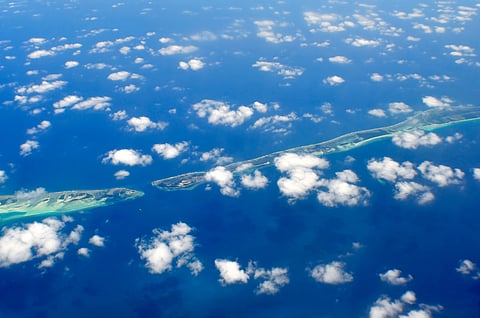

The Government of Maldives has launched the request for pre-qualification (RFQ) round seeking developers to install 21 MW of grid-tied floating solar and land based solar power capacity on six islands. The tender has been issued by the Ministry of Finance on behalf of the Ministry of Environment.
The 21 MW capacity will be developed under two lots, with lot one installing 10 MW floating solar PV capacity in Addu City and lot two having 11 MW land based solar set up in Addu City, Favahmulah City, Kulhudhuffushi City, GDh. Thinadhoo, B. Eydhafushi and Lh. Hinnavaru.
Successful bidders can bid for any one or both the lots to install this capacity on design-build-finance-own-operate-transfer (DBFOOT) basis.
Interested bidders need to register with the Ministry of Finance latest by March 12, 2020, which is also the date to submit final documents. The tender announcement has been published in the country's official gazette.
Maldives has tendered this 21 MW capacity under the Accelerating Renewable Energy Integration and Sustainable Energy Project (ARISE) supported by the World Bank to enable the country increase its renewable energy power generation capacity and its integration.
An island state with 1,192 coral islands along the Indian Ocean, Maldives has 80% of its total land area lower than one meter above the mean sea level which makes it very vulnerable to hazardous effects of climate change. Close to 95% of the country is dependent on diesel fuel for power generation and diesel imports are an expense for it. Increasing renewable energy penetration, says the World Bank, in the electricity sector is a solution to address the challenges posed by high cost and polluting diesel power supply here.
Apart from the World Bank, the Asian Development Bank (ADB) is also helping Maldives reduce its dependence on diesel powered generation through solar-battery-diesel hybrid power (see Maldives Turning To Hybrid Renewable Energy Systems).
.png?w=50&fm=png)